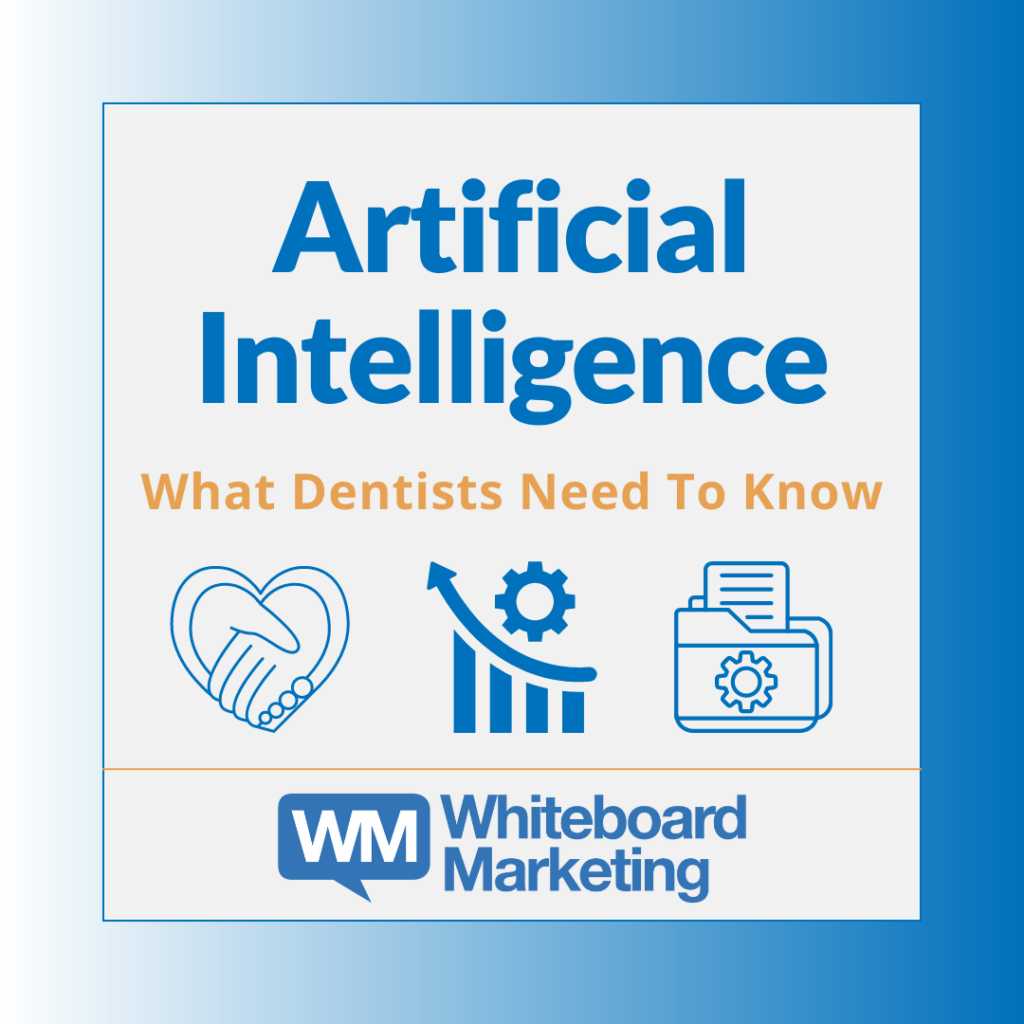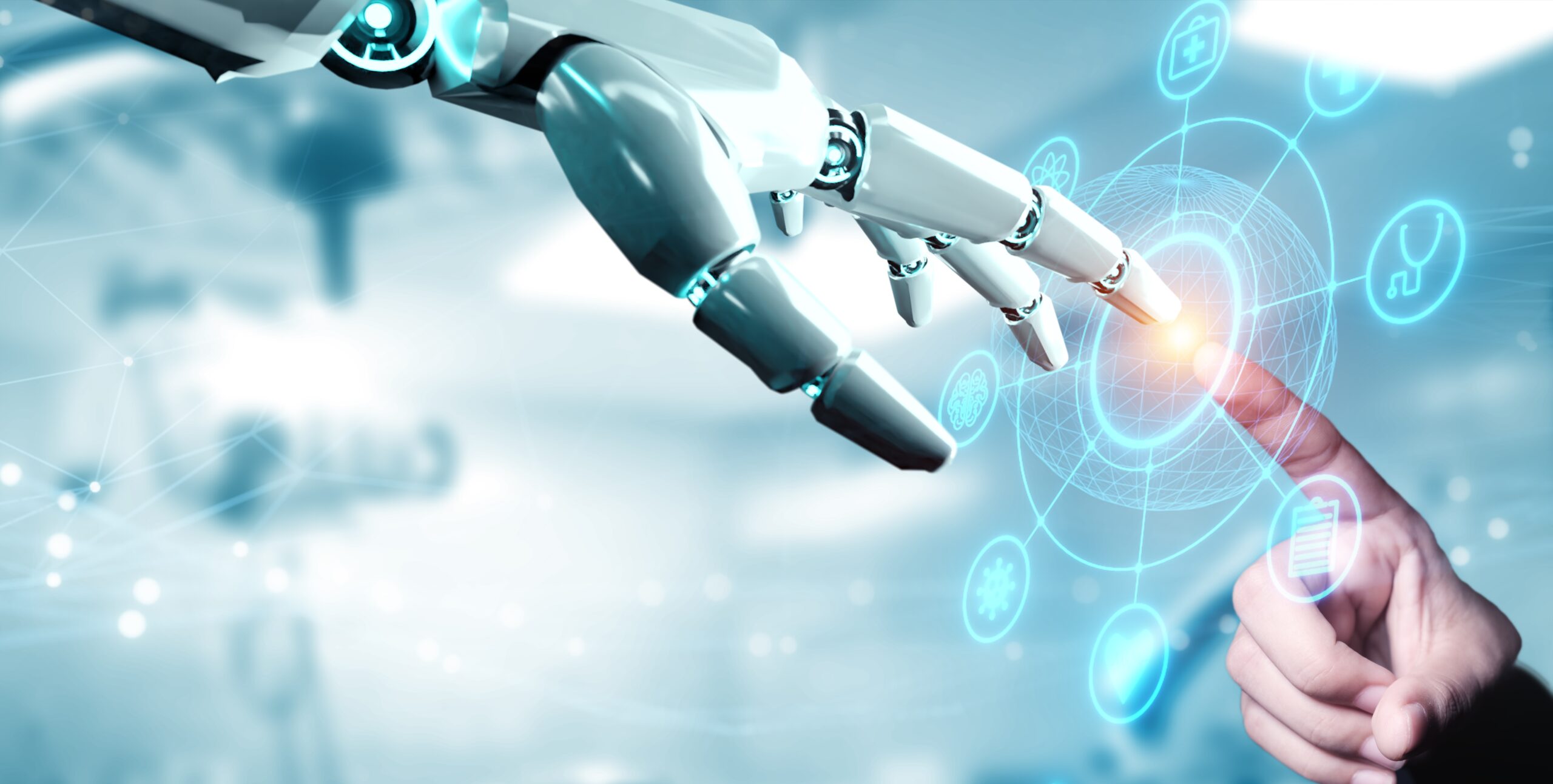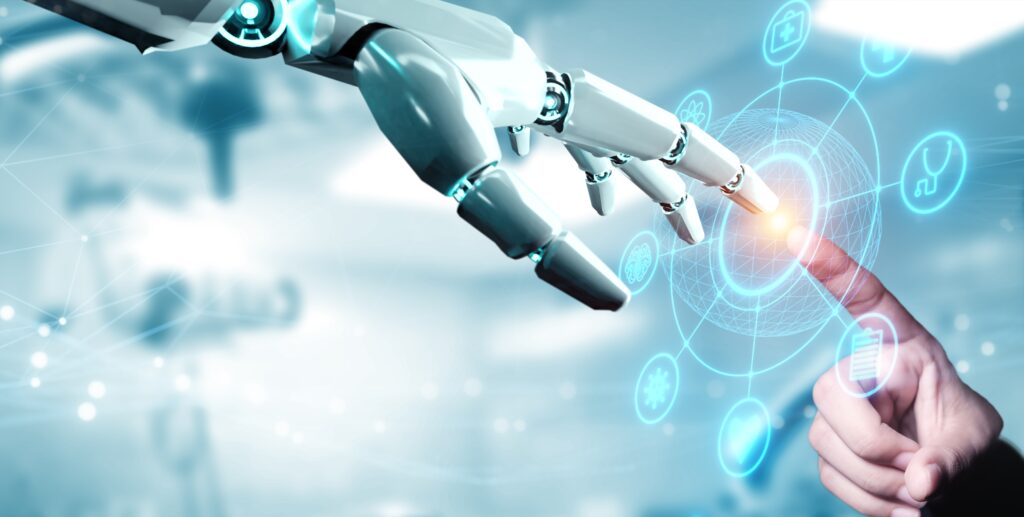
Artificial intelligence (AI) has been making waves in many industries, and the dental industry is no exception. With advancements in AI technology, dental offices are finding new and innovative ways to improve patient care and their overall experience. In this blog, we will discuss how AI can impact a dental office and its relationship with patients, both existing and new.
AI can be used to create digital models of patients’ teeth, which can help dentists create more accurate diagnoses and treatment plans. AI can also be used to develop personalized treatment plans for patients, taking into account factors such as age, health history, and lifestyle habits. This can lead to more effective treatment and better patient outcomes.
Improved Patient Care
AI can also be used to improve patient communication. Chatbots can be programmed to answer frequently asked questions and provide patients with information about their treatment plans. This can help patients feel more informed and involved in their care, which can lead to better patient satisfaction.
Increased Efficiency
AI-powered scheduling software can help dental offices manage patient appointments more efficiently, reducing wait times and improving the patient experience. AI can also be used to automate administrative tasks such as billing and insurance claims processing, freeing up staff time to focus on patient care.
Better Data Management
AI can also be used to improve data management in dental offices. For example, AI-powered software can be used to analyze patient data, such as medical histories and treatment plans, to identify patterns and trends. This can help dentists make more informed decisions about patient care.
AI can also be used to improve dental research by analyzing large data sets to identify new treatments and therapies for dental conditions.
Challenges and Limitations
Despite the potential benefits of AI in dental offices, there are also challenges and limitations to consider. Some patients may be hesitant to use AI-powered technologies, preferring to interact with a human dentist. There may also be concerns about data privacy and security when using AI-powered software.
There are also limitations to the capabilities of AI technology. While AI-powered software can help dentists make more accurate diagnoses and treatment plans, it cannot replace the expertise and experience of a human dentist.
Conclusion
In conclusion, AI has the potential to significantly impact the dental industry and improve the relationship between dental offices and their patients. AI can improve patient care, increase efficiency, improve the patient experience, and improve data management. However, there are also challenges and limitations to consider. Dental offices should carefully consider the potential benefits and limitations of AI before implementing AI-powered technologies in their practice. By doing so, they can ensure that they are providing their patients with the best possible care and experience.

